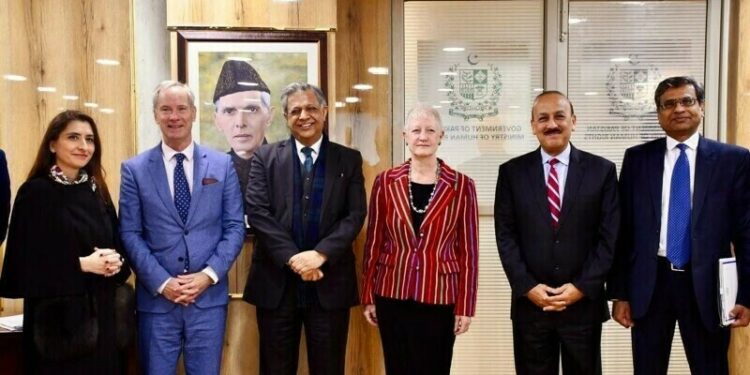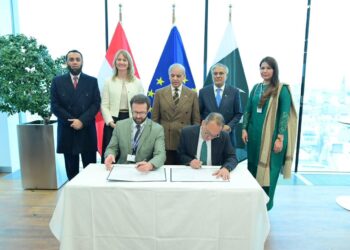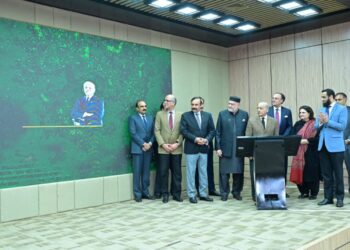The European Union has warned Pakistan not to take the Generalized System of Preferences Plus (GSP Plus) status lightly.
The European Union’s Special Representative for Human Rights, Olof Skoog, who is on a visit to Pakistan, has urged the government not to use military courts to prosecute cases against citizens, and has also opposed recent moves to restrict freedom of expression.
Speaking to Dawn, he said he conveyed these messages to senior government officials, including the Army Chief, Chief Justice and members of the federal cabinet, in separate meetings.
The aim of his visit is to discuss key human rights issues with the government and learn about Pakistan’s plans to address them ahead of the GSP Plus monitoring mission in June 2025.
Olav Skoog urges Pakistan not to try civilians in military courts, not to restrict freedom of expression just to shield individuals from criticism.
The EU ambassador’s insight will be crucial to securing continued access to GSP Plus, as Pakistan relies on the scheme, which provides preferential access to EU markets.
The EU had earlier expressed concern over his prosecution for his role in the May 9 events, when riots broke out following the arrest of PTI founder Imran Khan.
In a statement issued after the announcement of the sentences handed down by the military courts, the European Union said that “these decisions are considered to be in conflict with the obligations that Pakistan has undertaken under the International Covenant on Civil and Political Rights (ICCPR).
Speaking to Dawn, Olof Skoog reiterated the same concerns, saying that we have expressed our concerns about the use of military courts against civilians.
He said that I had this discussion and I will continue this discussion, we believe that a civilian court system should be implemented for civilians, he clarified that when military courts were widely used in response to protests, we have expressed our concerns. This is our general position, we will not comment on individual cases.
He said freedom of expression is another condition for GSP Plus status, even as journalists and opposition parties protested against the approval of controversial amendments to the country’s cybercrime laws.
He said that this is happening while I am visiting Pakistan, I am discussing it with government officials, we believe that there should be very limited restrictions on freedom of expression.
He said that you cannot restrict freedom of expression to protect politicians, officials or the system from criticism and that is the discussion we are currently having with Pakistan on where to draw the line.
He said that the next round of the GSP Plus scheme depends on what Pakistan does in terms of compliance with various international obligations, it cannot be said that GSP Plus will be there for the next round.
So far, the EU official has met with Deputy Prime Minister Ishaq Dar, Army Chief General Asim Munir, Chief Justice Yahya Afridi, the ministers of law and commerce, among other officials, civil society, media and human rights officials.
He said that he used his visit to convey to the relevant authorities what he heard from Pakistani civil society and that it was related to the issues we discussed, freedom of expression, workers’ rights, the death penalty, and people being held in prison without trial or punishment, these are some of the issues that we have raised with Pakistan.

























